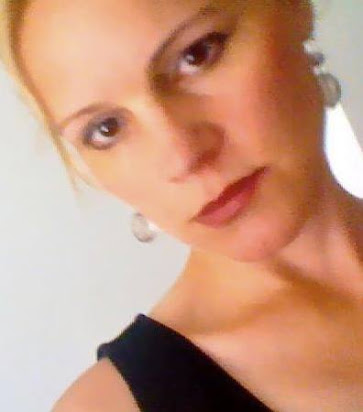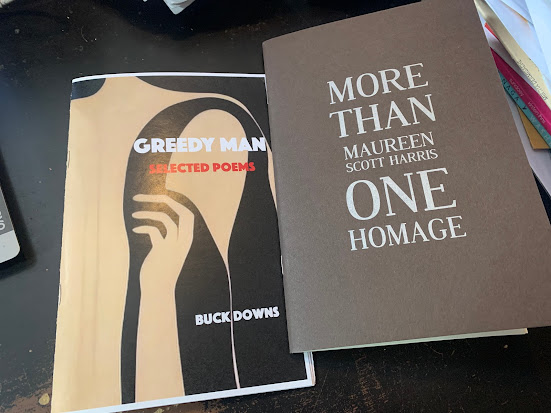Michelle Sinclair worked as a policy analyst on human rights issues for many years. She studied international development and social work at McGill University, and completed an MFA at Chatham University in Pittsburgh. Her original work and Spanish-English literary translations have appeared in The Antigonish Review, Linden Avenue Literary Journal, and other journals in Canada and the US. Her first novel, Almost Visible was published by Baraka Books in September 2022, and received The Miramichi Reader’s “Best Books of 2022” award for fiction. She lives in Ottawa with her husband, three children and three pets.
1 - How did your first book change your life? How does your most recent work compare to your previous? How does it feel different?
I’ve only published my debut novel so far. I was nervous about how it would be received, but I’m trying to go with the flow. I’m also learning how wonderful it feels if a reader connects with an idea, theme or character.
2 - How did you come to fiction first, as opposed to, say, poetry or non-fiction?
I always read fiction and it was my first love. I wanted to write like my favourite authors. I suppose I may have been frightened of non-fiction and poetry - it seemed easier to “hide” behind fiction. I like to experiment and try new styles and genres and there’s so much one can do with fiction.
Ceridwen Dovey said this about fiction: “In a secular age, I suspect that reading fiction is one of the few remaining paths to transcendence, that elusive state in which the distance between the self and the universe shrinks. Reading fiction makes me lose all sense of self, but at the same time makes me feel most uniquely myself.”
3 - How long does it take to start any particular writing project? Does your writing initially come quickly, or is it a slow process? Do first drafts appear looking close to their final shape, or does your work come out of copious notes?
I have bursts of inspiration - a character or an image or even an atmosphere, and I’ll write it down. But the plot work is the slowest (and most challenging) for me. I need to know the characters well and then I can work out what will happen to them. Unfortunately I have to think, plan, percolate (and ask my family for plot ideas) for a long time!
4 - Where does a work of fiction usually begin for you? Are you an author of short pieces that end up combining into a larger project, or are you working on a "book" from the very beginning?
If the idea is to explore a moment or a feeling, or if I’m looking to play with words, then I know it should be a shorter piece. If the idea is to really let characters live a layered experience, then I’ll know it’s a book. So far I’ve only written one book though, so we’ll see if I can do it again! I think I might be working on another book, but sometimes it threatens to be a novella.
5 - Are public readings part of or counter to your creative process? Are you the sort of writer who enjoys doing readings?
I am the type of person who has hoped that some calamity will befall me and prevent me from being able to do any public speaking. In my former work I had to do it all the time and it never got easier (as they promised it would).
However, public readings have proven to be quite fun. I was nervous for the first one, but the crowd was lovely and supportive. While I’ll always prefer sitting on the sidelines to being the center of attention, in the end readings are good for me to connect with others and to challenge myself.
6 - Do you have any theoretical concerns behind your writing? What kinds of questions are you trying to answer with your work? What do you even think the current questions are?
I tried to answer this question in my own words, but I think George Saunders (in A Swim in the Pond in the Rain) sums it up well when he discusses the classic Russian short stories:
“The resistance in the stories is quiet, at a slant, and comes from perhaps the most radical idea of all: that every human being is worthy of attention and that the origins of every good and evil capability of the universe may be found by observing a single, even very humble, person and the turnings of his or her mind.”
7 – What do you see the current role of the writer being in larger culture? Do they even have one? What do you think the role of the writer should be?
Writers have many roles - they inform, entertain, distract and educate. They can evoke empathy and compassion. They ask questions about the human condition. The fact that writers can convey philosophical concepts in imagined stories brings us closer to feeling a conceptual issue - rather than thinking about it (I suppose the same could be said about art in general). I think the role of the writer is to bring us to a closer understanding of ourselves.
8 - Do you find the process of working with an outside editor difficult or essential (or both)?
I really enjoy working with editors, and appreciate their perspectives. I almost always enjoy working with others and love getting feedback.
9 - What is the best piece of advice you've heard (not necessarily given to you directly)?
When I was beginning my novel, my mentor warned me that it might take me a decade to finish. He was essentially telling me to chill out, but I was horrified. I wanted to finish the work quickly. He was teaching me that writing will take the time it takes, and he was absolutely correct. That novel took eleven years to finish!
10 - What kind of writing routine do you tend to keep, or do you even have one? How does a typical day (for you) begin?
I have struggled to keep a routine and failed miserably. I write when I can. I have three children, three pets, a job outside the home and a number of volunteer responsibilities. Sometimes I have to remind myself that making it through the day is enough.
11 - When your writing gets stalled, where do you turn or return for (for lack of a better word) inspiration?
I read an author I admire and hope that their words and talent will somehow, by osmosis, make its way into me. Poetry will often inspire me.
12 - What fragrance reminds you of home?
Lilacs. I’ve never had one home (we moved a lot), but I always seemed to be with my mother whenever I encountered a lilac tree, so I connected lilacs and my mother. She passed away almost twenty years ago but she seems present when I smell lilacs, which is both sad and comforting.
13 - David W. McFadden once said that books come from books, but are there any other forms that influence your work, whether nature, music, science or visual art?
Nature and music are probably the two most influential (other than books and words). I find great solace and inspiration in nature. Music is tricky because I can’t listen to music while I work, but certain pieces of music might inspire an image or an “atmosphere” that I want to evoke through writing.
14 - What other writers or writings are important for your work, or simply your life outside of your work?
I think this is the most difficult question of all! I love any writer who challenges the status quo - particularly Black and Indigenous writers.
There are too many to name here, and I keep discovering new (or new to me) writers that give me a new perspective - of craft or sentence structure or theme. Writers who are important for my work are those who are courageous or push boundaries, because I feel I have permission to try to do the same.
15 - What would you like to do that you haven't yet done?
I want to write a play. Seeing one’s work interpreted and acted on a stage is an exciting prospect and the collaborative effort is appealing because it is less lonely than writing on one’s own.
16 - If you could pick any other occupation to attempt, what would it be? Or, alternately, what do you think you would have ended up doing had you not been a writer?
I worked as a policy analyst for many years and enjoyed my job, but I feel fortunate to be able to focus more on writing and reading. That said, I want to find a way to further connect literature and social justice efforts. In my MFA program, I was able to work with community programs - in one instance at a rehabilitation center for mothers with addiction. I want to keep writing and publishing and eventually find out how to partner with others in these kinds of pursuits.
17 - What made you write, as opposed to doing something else?
I felt compelled to try. I love reading and I love playing with words, and I knew that it could be something that might become easier with time and practice. I’m also painfully aware of the things I cannot do (and there are so many)!
18 - What was the last great book you read? What was the last great film?
I have fairly eclectic tastes, but I really enjoy stories with introspective, perceptive characters. I just finished Martha Schabas’s My Face in the Light and loved it. Each paragraph contains a lovely, thought-provoking perspective that illuminates some emotion I’ve considered superficially but never fully contemplated. I didn’t want it to end. I had to read slowly to savour it.
I’ve been watching a lot of movies about musicians lately. I recently enjoyed “Summer of Soul”, about the 1969 Harlem Cultural Festival. It includes interviews and live footage of performers like Stevie Wonder, Mahalia Jackson and Nina Simone, and is informative about the social and historical context of the festival.
19 - What are you currently working on?
A few different projects, and I need to focus! I had two ideas for novels, but I’m wondering if one of them could be turned into a play. I also have a few ideas for short stories and I’m recently coming up with poems. I don’t know where they’re coming from, but it’s fun to work on shorter pieces and closure feels more accessible.
My kids have incredible imaginations, and would like me to write a book for kids. However, they’re such good writers, I’m hoping I can edit their work. That would be the best project!
12 or 20 (second series) questions;
![]()







